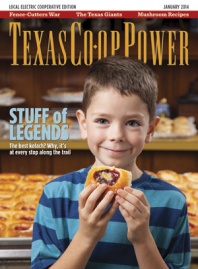I am the daughter of a retired high school English and journalism teacher. But that does not make me a teacher.
During the 2013 spring semester, I worked as a tutor and substitute teacher for the Austin Independent School District. I entered both part-time jobs with lofty expectations: that as the child of a teacher, who taught me in high school, I would excel in the classroom, planting seeds of encouragement that would someday bloom into productive and creative adult lives.
Instead, the tables turned on me. Schooled under a classification system I once helped enforce as a brash teenager, I was reminded: Students, as the higher order, rule. Substitutes, as the lower order, are bait—fresh meat for the piranhas.
To be fair, there were many bright moments, especially as a tutor for an education initiative called AVID: Advancement Via Individual Determination. The higher education-readiness program places academically average students in advanced classes. That group includes minority and low-income students, some of whom will become the first in their families to attend college.
In Texas, the elective AVID model is used at 144 of 1,028 public school districts. Austin makes it available for high school and middle school students, and I tutored freshmen on two campuses.
I wasn’t a total failure. AVID classrooms, which feature the security of working with a teacher as opposed to flying solo as a sub, work best with math-proficient tutors. I’m as lopsided as they come. I was the kid asking, “When am I ever going to need algebra in real life?” And in geometry, I agreed with a classmate’s logic. Wanting to take shortcuts, he’d stare at a problem written on the chalkboard and challenge our frazzled teacher: “You can see it’s congruent.”
But, thanks to my mother, I can hold my own in English. Those skills came in handy last school year as I helped AVID freshmen write practice college scholarship-application essays. At first, they grumbled: “I have to write a whole page?” But as they put pencil to paper, the stories flowed. Some students came from broken homes. Some wrote about financial stress and parents who were working long hours to make ends meet. Some wrote about loneliness and bullying.
Some cried at the profoundness of their own journeys. Some could’ve written a book.
And, just as I once treated substitute teachers, some students wrote me off. I was the middle-aged woman who, like, duh, didn’t know anything. I was old, as one freshman girl helpfully told me one day after I’d prattled on and on about the joys of using that ancient thing called a dictionary. I argued with students who complained: “When will I ever need algebra?” As a sub, to be heard above the din, I committed the cardinal sin: yelling, which only heightens the circus atmosphere.
I refereed conflict. One morning on the playground, a herd of fifth-graders and I tried to pry the T-ball bat away from a boy crying foul play. She, he charged, pointing at a classmate, had cut line. Actually, I offered, she didn’t. It’s her turn to bat. “NOOOOO!!” he screamed, tears streaming down his face. “IT’S MY TURN!!” He spun in a circle with the bat, wildly swinging at and missing the ball resting safely on the tee, as we all jumped out of harm’s way.
I know all about playground scuffles. I went to school with tough country kids at Southland, near Lubbock, where my teachers included my mother, Laura Jo Wheeler, and my Aunt Peggy Wheeler, my inspiring and innovative second-grade teacher and senior sponsor. Out of awkwardness, I never addressed them by title in the classroom. I’d just raise my hand and wait to be noticed.
Throughout the grades, as a teacher’s smart-aleck kid, I managed to get noticed plenty. By the ninth grade, I knew everything, so I thought. Who needed algebra? I’d fold my arms and sit, sullen, above it all. My class—all 14 of us—proudly wore its rowdy label. Some of us had been together since the first grade. Now we were too cool for school.
Until we entered my mother’s classroom. We’d come roaring down the hallway—and encounter my mother standing outside her open door, waiting for us, her index finger pointing to the trash can where I was to toss the wad of bubblegum hidden on the roof of my mouth.
And I can still see The Stare: my mother’s stern, withering look that could wilt the will of the biggest, roughest boy. But my mother was fair in the classroom. She didn’t yell. She was always prepared, with lesson plans written on the chalkboard. A consummate grammarian, she drilled us, over and over, on the parts of a sentence. She played Shakespeare records for us, bringing the words to life through vocal dramatizations.
Students respected her. They listened. They learned.
Last spring, I met someone similar: Idell Jacinto, the AVID teacher at Travis High School in south-central Austin. On Tuesdays, I tutored in Jacinto’s classroom of freshmen. She never yelled. She never lost control. She met with students one-on-one. And she accepted nothing less than their best efforts.
One day, Jacinto stood in front of the students, hands on her hips and flames in her eyes. A nervous hush fell over the room. Some students had been slacking. And they knew it. Pacing back and forth, with the intensity of a fire-and-brimstone preacher, Jacinto laid it on the line. She might as well bring some mattresses from home so the students could start sleeping under the nearby Interstate 35 bridge. That’s where you’re headed, she said, if you don’t get your priorities straight. No one laughed. They knew she was right. Without a high school diploma and a quality education, their lives would be difficult.
Jacinto is now in her 30th year of teaching. Yes, she could retire. But too many kids need that extra nudge to recognize their potential. She’s always available to listen, to push, to counsel. She gives students multiple-choice options—about school, about life—and thrills at watching them learn to make the best decisions.
She can’t walk away now. “It’s hard to pull back,” Jacinto says, “when you see yourself making a difference.”
——————–
Camille Wheeler is an Austin writer.


